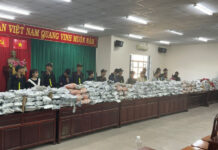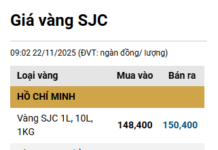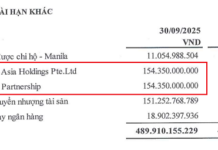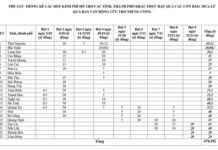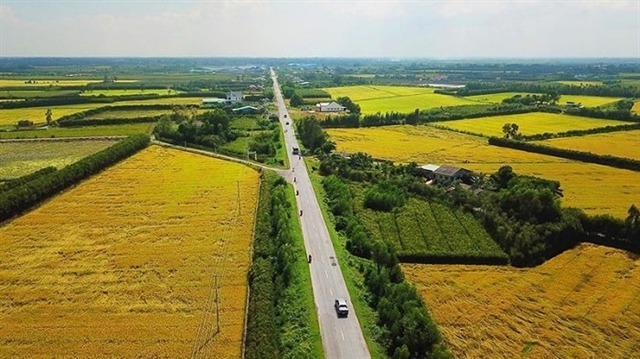
New Land Use Fee Reduction Regulations Effective from August 1st, 2024. |
Promoting and Enhancing the Effectiveness of the Bidding Law
The Prime Minister issued Directive No. 24/CT-TTg dated July 29th, 2024, to promote and enhance the effectiveness of the Bidding Law.
To further strengthen and improve the implementation of policies and laws related to the selection of contractors and investors, the Prime Minister directed the following: Complete and issue detailed guidelines for the Bidding Law; improve the quality and efficiency of bidding activities; strengthen inspection, supervision, monitoring, and handling of complaints and violations; and conduct training and awareness campaigns to enhance the capabilities of organizations and individuals involved in bidding processes.
First-time Land Use Certificate Issuance within 03 Working Days
The government issued Decree No. 101/2024/ND-CP on July 29th, 2024, regulating basic land surveys, land use registration, and the issuance of land use rights certificates, as well as the national land information system.
According to the decree, the time frame for land registration, registration of assets attached to land, and issuance of land use rights certificates is as follows:
First-time land and asset registration should not exceed 20 working days, and first-time issuance of land use rights certificates should not exceed 03 working days.
Land Support Policies for Ethnic Minorities
The government issued Decree No. 102/2024/ND-CP on July 30th, 2024, providing detailed regulations for the Land Law. The decree came into effect on August 1st, 2024.
The decree clarifies that land support for individuals from ethnic minorities, as stipulated in Clause 3, Article 16 of the Land Law, shall be implemented as follows:
1. For those without residential land, they shall be allocated residential land or have their land use purpose changed from another type of land to residential land. The land user shall be exempt from land use fees for the area within the residential land allocation limit as determined by the provincial People’s Committee.
In cases where the residential land area is less than the allocation limit, the land use purpose shall be changed from another type of land to residential land, and the land user shall be exempt from land use fees for the area within the residential land allocation limit.
2. For those without agricultural land or whose agricultural land area is less than 50% of the local agricultural land allocation limit, they shall be allocated additional agricultural land within the limit.
New Regulations on Land Use Fee Reduction Effective from August 1st, 2024
The government issued Decree 103/2024/ND-CP on July 30th, 2024, regulating land use fees and land rent. According to the decree, there is a 50% reduction in land use fees for individuals and households of ethnic minorities who meet the criteria and live in areas with especially difficult socio-economic conditions, border, or island areas.
A 50% reduction in land use fees for residential land is also provided for individuals specified in points a and b of Clause 3, Article 124 of the Land Law, who are working in border or island communes or districts without commune-level administrative units in regions with particularly difficult socio-economic conditions.
A 30% reduction in land use fees for residential land is granted to individuals specified in points a and b of Clause 3, Article 124 of the Land Law, who are working in border or island communes or districts without commune-level administrative units in regions with difficult socio-economic conditions.
New Regulations on the Land Development Fund Effective from August 1st, 2024
The government issued Decree 104/2024/ND-CP on July 31st, 2024, regarding the Land Development Fund. This decree came into effect on August 1st, 2024.
As per the decree, the Land Development Fund is a non-budgetary government financial fund under the management of the provincial People’s Committee. It operates independently of the state budget, is non-profit, and aims to preserve and develop capital.
The fund’s function is to receive and mobilize capital to carry out the task of providing advance capital, which will be repaid as per the 2024 Land Law, this decree, and other relevant legal documents.
Support for Vocational Training and Job Placement for Land Revocation
Deputy Prime Minister Tran Hong Ha signed Decision No. 12/2024/QD-TTg on policies for job placement and vocational training for individuals affected by land revocation.
The policy applies to two groups: 1) Individuals from households who are eligible for support as per Clause 2, Article 109 of the Land Law and its detailed regulations (those with revoked agricultural land); and 2) Individuals from households as per Clause 3, Article 109 of the Land Law (those with revoked business land).
These groups will benefit from policies supporting vocational training, domestic and overseas job placement, and loans for overseas employment. The support period is five years from the date of the land revocation decision.
Plan for Implementing Binh Dinh Province Planning until 2050
On July 31st, 2024, Deputy Prime Minister Tran Hong Ha signed Decision No. 734/QD-TTg, issuing a plan to implement the Binh Dinh Province Planning for the 2021-2030 period, with a vision towards 2050.
The plan specifies the timeline and resources for implementing programs and projects to develop policies and solutions to attract social resources for the realization of the approved planning. It also aims to boost the development of industries, fields, programs, and projects in line with the approved planning.
Bac Giang City Meets Criteria for Type II City
Deputy Prime Minister Tran Hong Ha signed Decision No. 728/QD-TTg on July 31st, 2024, recognizing Bac Giang City, Bac Giang Province, as a Type II city. The city comprises the entire current administrative boundary of Bac Giang City and Yen Dung District, covering an area of 258.30 km² and consisting of 34 communal-level administrative units.
The proposed urban area includes all 16 communal-level administrative units of Bac Giang City (including 10 current wards and 6 expected wards: Dinh Tri, Tan My, Dong Son, Tan Tien, Song Mai, and Song Khe) and 8 communal-level administrative units of Yen Dung District (including Nham Bien Town, Tan An Town, which is expected to merge with Lao Ho, and the communes of Noi Hoang, Tien Phong, Tan Liu, Huong Gian, and Cang Thuy).




